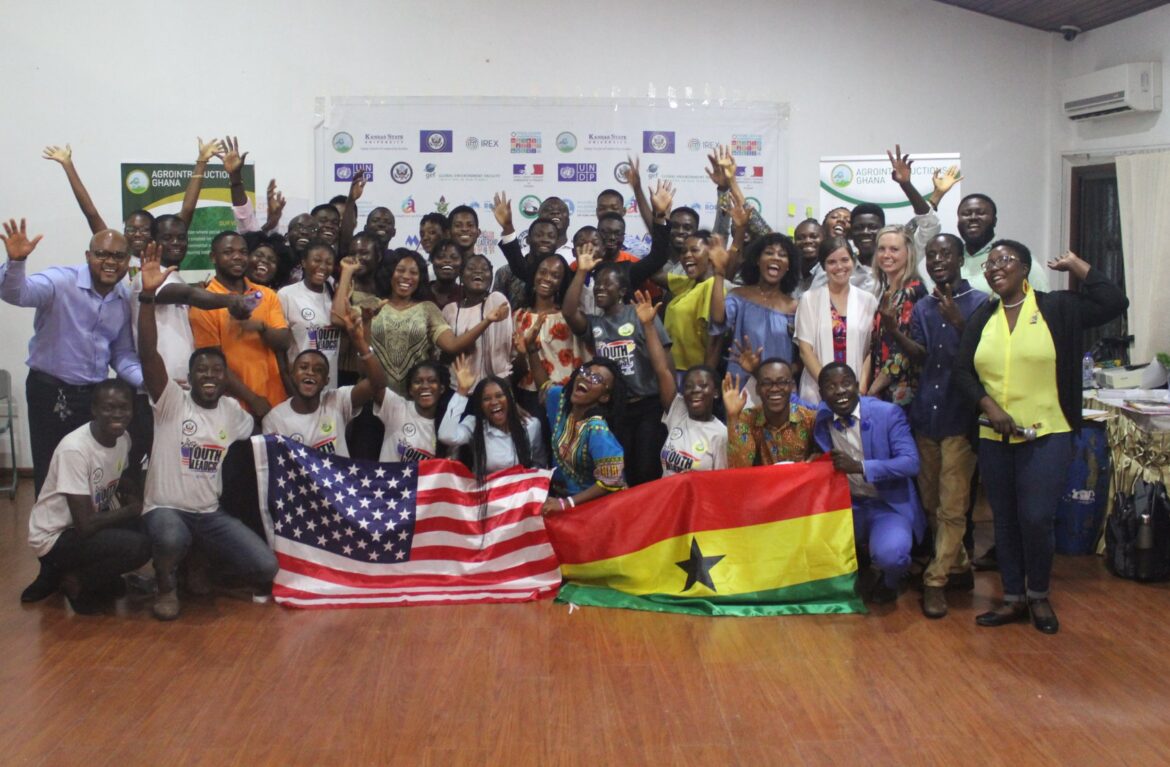The Youth Leadership Empowerment and Advocacy for Developing Climate Smart Leaders in Ghana, (Youth-LEADCSL)
program is a holistic and innovative project, designed with the goal of expanding the leadership capabilities and opportunities for young leaders passionate about climate change to take actions to combat climate change as active
citizens towards a more inclusive Ghanaian society.
The program is organized by Agrointroductions Ghana in partnership with the U.S. Embassy Ghana and Kansas State University Staley School of Leadership Studies (SSLS) – USA and other partners including Mandela Foundation for West Africa, Creative Action Institute, and Mandela Washington Fellows of Ghana.
The scope of the program is to organize a tailored leadership training and capacity building for young leaders
passionate about climate change leadership and career development which was organized from the 8th November 2019 to the 15th of November 2019. After the training is a Pass-it-On exercise where young leaders who participated in the training are encouraged to share and transfer the knowledge and skill acquired to their peers. Leadership mentorship is also provided to participants by facilitators and participants who have benefited from our previous training.
The training which just ended was categorized into three different sessions with different target groups for each session which took place at two different locations thus Kumasi, the Ashanti regional capital of Ghana and Tamale, the Northern/Savannah regional capital of Ghana.
The first section was targeted at media personnel, women leaders & entrepreneurs, NGOs, or young environmental, and the second session targeted student, entrepreneur, or young environment professional passionate about climate change and leadership. Both the first and second session was for individuals in the southern part of Ghana.
The third session was an all-inclusive session targeted at individuals in both the first and second sessions but living in the northern part of Ghana and some selected individuals with special needs from the Ghana National Association of the Deaf (GNAD), Northern regional branch.
Individuals who were accepted to partake in the program had to apply online and a review team reviewed all the applications and select the right candidates that met the specifications. Over 600 applications were received across the country but only 180 individuals (60 for each session) were given the opportunity.

